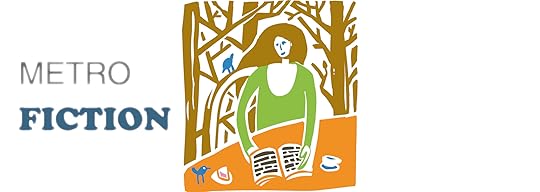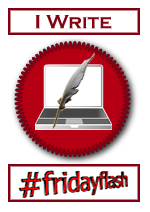P.J. Kaiser's Blog, page 3
February 6, 2012
Inspiration Minute – Irina Werning – Feb 7, 2012
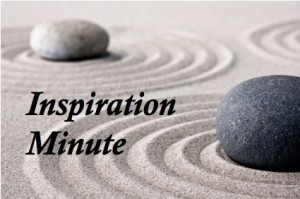 In my Monday feature, "Inspiration Minute," I'd like to share with you something that has caught my attention or inspired me recently. Be forewarned, it may take a bit more than a minute!
In my Monday feature, "Inspiration Minute," I'd like to share with you something that has caught my attention or inspired me recently. Be forewarned, it may take a bit more than a minute! 
Have you ever been writing a story and had to grapple with how your characters have changed physically over a large span of time? Or maybe you have memories of photographs taken when you were a child (or when your children were young) and wondered how those photographs would look like now? Well, Irina Werning had the same curiosity. She has two fantastic collections {Warning: Both collections contain a small amount of nudity (NSFW)} of side-by-side "then" and "now" photos: "Back to the Future" and "Back to the Future 2". I love especially how the photographs were recreated including not just the models themselves but the facial expressions, the backdrop and other details. If you have more time, her other collections are interesting as well.
I hope you've enjoyed this week's installment of Inspiration Minute! Feel free to share it with your friends 

February 2, 2012
Review: “Getting Things Done” by David Allen
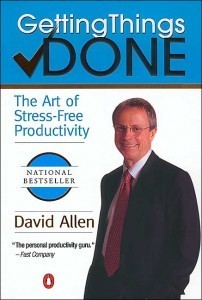 Since becoming a mom, I had forgotten all of the organizational productivity skills that i possessed during my successful career as a manager in information technology. My to do list was a disaster. During the few moments I was able to have some semblance of a to do list, I didn’t have the right tools in place to be able to access it easily.
Since becoming a mom, I had forgotten all of the organizational productivity skills that i possessed during my successful career as a manager in information technology. My to do list was a disaster. During the few moments I was able to have some semblance of a to do list, I didn’t have the right tools in place to be able to access it easily.
Then I discovered David Allen’s book “Getting Things Done.” Surfing the web, you’ll find proponents and detractors of the GTD system. While reading the book, I found numerous things that didn’t work for me. But on balance, there were more things that worked for me than didn’t.
For example, some things that didn’t work for me:
GTD recommends having an extensive tickler system to handle recurring events. Although I have a number of recurring events on my to do list, I found it much easier to simply use recurring events in my to do list software.
The concept of the “inbox” didn’t work for me. If something gets stuck in a folder it’s “out of sight, out of mind” for me. I need to either get something on my to do list right away or make a visible pile that will force me to deal with it in the short term.
Although the GTD approach does not encourage assigning priorities to tasks, I found that I needed to use both priorities and assigning tasks to specific days. I had to do this because I cannot operate with a larger, amorphous to do list. I had major problems choosing the “next” thing on the list to do and I needed for the list itself to tell me what to do next.
And here are some of the key concepts that rang true for me:
The two-minute rule has worked wonders for me. The rule says that if something will take less than two minutes, just do it rather than putting it on the to do list. I modify this rule from time to time. I sometimes change it to a five-minute rule. Sometimes I violate the rule if I just don’t have time to do something in the moment.
The process that Allen walks through to gather all of the “stuff” that needs to go onto the to do list was very effective for me. The bad news was that it made my to do list much bigger, but the good news is that it relieved my stress because i finally felt that I knew everything that was on my plate.
Part of my problem, as I realized while reading GTD, was that many of the items on my to do list were too ill-defined and they were actually “projects” rather than to do items. Once I analyzed those items and followed the GTD approach of putting the “next action item” on my to do list (a smaller, specific task) my list got much more manageable.
One of the guiding principles of the GTD approach is that a large part of the daily stress that we experience is a result of trying to keep all of the tasks that are on our plate in our heads. The process of dumping all of those tasks into a list is tremendously freeing and goes a long way towards reducing stress.
I’m still in the process of refining the concept of “projects” within GTD and how to make that work within my to do lists. I created folders and had my task lists there, but with my “out of sight, out of mind” issue, these lists got ignored. I agree with the philosophy of projects, but haven’t yet found a good solution to how to keep this work organized.
I still get overwhelmed sometimes and I’m not very good about having a regular weekly review period to update the to do list. But I’m much better than I was a year ago and I hope to keep improving.
One of the best things about this book is that you can read it in chunks and do the organizational work as you read. I personally hate self-help books that take so long to read that I feel like I’m being prevented from working on the task at-hand.
Critics of GTD often point out that the book is very general and common sense. While I agree to some extent, there are a lot of specifics in this book that can help you rethink how you organize your tasks and your time. If you read this book and come away thinking that it’s too general, then your to do list is probably pretty well organized.
I highly recommend this book if your to do list is out of control. The principles may or may not work for you, but I encourage you to try the GTD approach and then tweak it if necessary to fit your work style.
“Getting Things Done” is available in e-book, paperback and hardback formats from all major booksellers.

Review: "Getting Things Done" by David Allen
 Since becoming a mom, I had forgotten all of the organizational productivity skills that i possessed during my successful career as a manager in information technology. My to do list was a disaster. During the few moments I was able to have some semblance of a to do list, I didn't have the right tools in place to be able to access it easily.
Since becoming a mom, I had forgotten all of the organizational productivity skills that i possessed during my successful career as a manager in information technology. My to do list was a disaster. During the few moments I was able to have some semblance of a to do list, I didn't have the right tools in place to be able to access it easily.
Then I discovered David Allen's book "Getting Things Done." Surfing the web, you'll find proponents and detractors of the GTD system. While reading the book, I found numerous things that didn't work for me. But on balance, there were more things that worked for me than didn't.
For example, some things that didn't work for me:
GTD recommends having an extensive tickler system to handle recurring events. Although I have a number of recurring events on my to do list, I found it much easier to simply use recurring events in my to do list software.
The concept of the "inbox" didn't work for me. If something gets stuck in a folder it's "out of sight, out of mind" for me. I need to either get something on my to do list right away or make a visible pile that will force me to deal with it in the short term.
Although the GTD approach does not encourage assigning priorities to tasks, I found that I needed to use both priorities and assigning tasks to specific days. I had to do this because I cannot operate with a larger, amorphous to do list. I had major problems choosing the "next" thing on the list to do and I needed for the list itself to tell me what to do next.
And here are some of the key concepts that rang true for me:
The two-minute rule has worked wonders for me. The rule says that if something will take less than two minutes, just do it rather than putting it on the to do list. I modify this rule from time to time. I sometimes change it to a five-minute rule. Sometimes I violate the rule if I just don't have time to do something in the moment.
The process that Allen walks through to gather all of the "stuff" that needs to go onto the to do list was very effective for me. The bad news was that it made my to do list much bigger, but the good news is that it relieved my stress because i finally felt that I knew everything that was on my plate.
Part of my problem, as I realized while reading GTD, was that many of the items on my to do list were too ill-defined and they were actually "projects" rather than to do items. Once I analyzed those items and followed the GTD approach of putting the "next action item" on my to do list (a smaller, specific task) my list got much more manageable.
One of the guiding principles of the GTD approach is that a large part of the daily stress that we experience is a result of trying to keep all of the tasks that are on our plate in our heads. The process of dumping all of those tasks into a list is tremendously freeing and goes a long way towards reducing stress.
I'm still in the process of refining the concept of "projects" within GTD and how to make that work within my to do lists. I created folders and had my task lists there, but with my "out of sight, out of mind" issue, these lists got ignored. I agree with the philosophy of projects, but haven't yet found a good solution to how to keep this work organized.
I still get overwhelmed sometimes and I'm not very good about having a regular weekly review period to update the to do list. But I'm much better than I was a year ago and I hope to keep improving.
One of the best things about this book is that you can read it in chunks and do the organizational work as you read. I personally hate self-help books that take so long to read that I feel like I'm being prevented from working on the task at-hand.
Critics of GTD often point out that the book is very general and common sense. While I agree to some extent, there are a lot of specifics in this book that can help you rethink how you organize your tasks and your time. If you read this book and come away thinking that it's too general, then your to do list is probably pretty well organized.
I highly recommend this book if your to do list is out of control. The principles may or may not work for you, but I encourage you to try the GTD approach and then tweak it if necessary to fit your work style.
"Getting Things Done" is available in e-book, paperback and hardback formats from all major booksellers.

January 30, 2012
Inspiration Minute – The Red Ball Project – Jan 30, 2012
 In my Monday feature, "Inspiration Minute," I'd like to share with you something that has caught my attention or inspired me recently. Be forewarned, it may take a bit more than a minute!
In my Monday feature, "Inspiration Minute," I'd like to share with you something that has caught my attention or inspired me recently. Be forewarned, it may take a bit more than a minute! 
Last week's "Inspiration Minute" had to do with patience. This week's has to do with thinking outside the box. We turn to NYC artist Kurt Perschke who has a unique perspective, as outlined in this post from "Jeannie Jeannie." Here's hoping that Perschke can give you ideas on how to take a fresh look at your creative work.
I hope you've enjoyed this week's installment of Inspiration Minute! Feel free to share it with your friends 

January 26, 2012
Three for Thursday: Digital Book World Recap Links
Welcome to my blog feature – "Three for Thursday." You may not see an installment every Thursday, but when I can manage it, I'll be sharing three cool – er – somethings.
If you missed Digital Book World, I came across several fantastic summaries prepared by attendees (as tweeted by Theresa Meyers). I'm still making my way through them – there's a wealth of information in here:
Porter Anderson
Ron Hogan
Bob Mayer: Day 1, Day 2
I'm sure there are other good ones out there – if you find any, please share them in the comments. Also, be sure to check out the Digital Book World site for much more info.

January 24, 2012
Mariam Kobras' "Love is in the Air" Blog Hop Kickoff
I am pleased to welcome a special guest to my blog today. Author Mariam Kobras is here to tell us about her journey to publication and to kick off her "Love is in the Air" Blog Hop! Follow the action on Twitter by searching "#TDSBlogHop".
PJ: Thanks so much for joining me as my special guest on my blog, Mariam! We've been Twitter friends for a long time and I'm thrilled with your success!
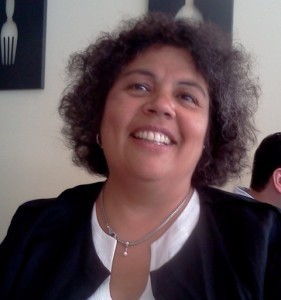 MK: Thank you for inviting me, PJ, the honor is all mine. And yes, it seems like we've been friends for ages!
MK: Thank you for inviting me, PJ, the honor is all mine. And yes, it seems like we've been friends for ages!
PJ: I want to start by asking you about the main character in your novel, international rock star "Jonathon Stone" – is there a real celebrity who inspired the persona of Stone?
MK: When my publisher and I met for lunch the first time, she asked me the same question, and added, "because he reminds me of Bruce Springsteen!"
Heck, who am I to argue with my publisher?
Seriously? There is no "real" rock star. Jon is his own person. He's a Brooklyn boy from a normal, middle class family. His mother is a retired teacher, and his father was a surgeon. His divorced sister Valerie is a music teacher at the same school he went to as a kid, and his brother Kevin is a doctor, like their father. His mother still lives in the same house where Jon grew up, not too far from the promenade. Jon is the only one who has the ambition to be more, to be famous. At the point where The Distant Shore starts, he is in his mid-forties, and ready to take a new path, to leave the stage and get involved in serious composing. In fact, Jon and Naomi, his wife, develop a Broadway musical together.
PJ: Can you tell us about your journey to publication with Buddhapuss Ink? What has publishing with a small press been like?
MK: In a word: awesome. I met Buddhapuss on twitter, I think about two years ago. For a long time we just chatted about their puppy, the weather and coffee, until I posted page 99 of The Distant Shore on my blog. Within minutes I got a message with a request for the full manuscript. Several months later, I signed a contract with them. I've never looked back.
PJ: What do you feel the advantages are of publishing with a small press over a large press?
MK: I enjoy working with Buddhapuss. I like how personal it is, how much I'm involved in the publishing process, and how much I have learned about editing. You wouldn't get that at a large house.
But…I have to tell you, I think with my heart. I "knew" I wanted to be signed with Buddhapuss. There were two other publishers requesting the book BEFORE I signed with them, and I refused. I WANTED Buddhapuss. And I'm glad I followed my gut feeling. I'm at home with them.
PJ: Can you tell us about the editing process?
MK: For me, it was easy. But then I've been very, very lucky with my editor. We speak the same language, we think alike. I can't tell where my writing ends and her edits begin. I'm totally comfortable with her work.
I'm even thinking it would be kind of fun to write a book with her. A collaboration. I think it would work.
PJ: Did you consider self-publishing?
MK: Never. Not for a moment, ever. I wanted a traditional publisher. Not even an ePublisher would have done it for me. This may be old-fashioned, but I wanted to hold a printed book in my hands. A printed book, published by a publishing house, with my name and their colophon on the spine. It's the validation I need. And it's the vindication for the many hours I stole from my family, writing.
PJ: And how did a one-book deal turn into a three-book deal? Did you always know the story of Jonathon Stone would be a trilogy?
know the story of Jonathon Stone would be a trilogy?
MK: I think so, yes. I used to teach theater classes at a high school before I REALLY started writing. When I took that job, there was only an empty, unused auditorium, no technical equipment, no props, nothing. We started from scratch. It was a wonderful time. I had to learn a lot about lighting, sound engineering, stage settings, basically everything. There was no one else! I even had to write the plays myself.
During that time, I went to a number of big rock and pop concerts—Simply Red, Bruce Springsteen, Neil Diamond, Chris de Burgh, some others, even Cirque de Soleil—and found I was more interested in the technical aspects of the production than the show itself. It fascinated me. I counted the containers on the parking lot behind the venues. I would stay after the shows, until they threw me out, watching them dismantling the stages. I found I wanted to write about that, as well as about the musical productions I had put on myself.
From Jon Stone, the lovesick rock star to a Broadway show…somehow that works for me.
PJ: What's the timeline for your books— the second one is in the editing stage now? How's the third one coming along?
MK: That's right. The Distant Shore was published this month, and it rocketed!
Book 2 is written and with the publisher for editing. I think you can expect it in September. Book 3 will be out in January or February 2013. January, if I have any say in it.
PJ: Any hints as to what's coming down the line for Jonathon Stone?
MK: As I've already mentioned, he and Naomi will produce a Broadway show. There may or not be a new baby…but, you will have to wait and read the books to find out!
PJ: Have you always written in long-form or have you written short stories as well? Which do you gravitate towards and why?
MK: The thing is, I didn't write at all before I started Distant Shore. Well, a number of plays for school. But not novels, and not short stories. Doing a novel seemed like a natural choice. I didn't think about it. I really can't tell you why.
PJ: How do you feel about genres – do you feel comfortable placing your book in a particular genre?
MK: My novels were placed by the publisher, on the "contemporary fiction/romance" shelf. I'm quite comfortable with that. Some day I'd like to see one of my books get the label "literary fiction". That's where I would like to be.
PJ: Do you have any tips for aspiring writers who would like to follow in your footsteps?
MK: Well, if they want to follow in MY footsteps, there's only one word of advice: WRITE.
End of story.
Sit down, and write.
PJ: Thanks so much for joining me today, Mariam! Best wishes to you!
This was the first stop on Mariam's "Love is in the Air" Blog Hop & Giveaway. We hope you enjoyed reading this interview.
Buddhapuss Ink LLC will be giving away copies of Mariam's first book The Distant Shore along with some other pretty terrific (and very Romantic) gifts as we count down the days to Valentine's Day!
Want to enter the giveaway?
Leave a comment for this post for one entry. We also encourage you to "Like" this blog and follow it!
Want more chances to win? CLICK HERE for all the info!

Inspired Links – Jan 24, 2012

In my Tuesday "Inspired Links" feature, I provide links and brief descriptions of thought-provoking articles. I hope you enjoy these little treasures 
Has your writing career had a turning point that changed your direction substantially? Nova Ren Suma is running a series over on her blog entitled "Turning Points" in which guest writers discuss these turning points in their careers. I highly recommend the entire series and I particularly enjoyed posts by Sean Ferrell and Gayle Forman.
In "The Sharks Are Circling" by David Gaughran over at Indie Reader, he Gaughran warns indie authors to beware of service providers who are more focused on taking advantage of writers than providing a service.
If you're wondering where to set your priorities in 2012, Christina Katz has some suggestions in her article over at the #amwriting site: "Stop, Drop and Micro-Publish."
From a series of podcasts that I listened to last year, I came to see the benefit of writing a logline even when it wasn't necessary for a pitch or other purpose. Loglines have a way of helping to focus a story and can help you figure out if a story fulfills your original purpose for writing it. "Hooks, Loglines and Pitches: What Every Writer Needs to Know" by Anne R. Allen provides a wonderful summary.
In "Ars Poetica" Lou Freshwater ponders the importance of literature and telling honest stories.
In "10 Musicians Who Really Should Write Novels" over on Flavorwire, Emily Temple ponders the possibility of extending these musician's lyrics into a novel. It's fascinating food-for-thought and may inspire your writing as well.
Kristen Lamb ponders the benefits and risks of a critique group in "Can Critique Groups Do More Harm Than Good?"
I've mentioned Gabriela Pereira and her wonderful resource "DIY MFA" before on this blog and she's written an article for Curiosity Quills that discusses it in depth: "How Does DIY MFA Work?"
Lindsay Boruker has lots of terrific suggestions in "The Importance of Keeping In Touch With Fans (and how to find them in the first place."
If you're looking for book marketing tips, you'll want to check out this interview of John Kremer by Joel Friedlander. It's nearly 45 minutes, but well worth the time.
I was lucky enough to be a guest over at Friday Flash dot Org and I was able to announce the Metro Fiction is now open for submissions.

January 23, 2012
Inspiration Minute – Chrisman's Patience – Jan 23, 2012
 In my Monday feature, "Inspiration Minute," I'd like to share with you something that has caught my attention or inspired me recently. Be forewarned, it may take a bit more than a minute!
In my Monday feature, "Inspiration Minute," I'd like to share with you something that has caught my attention or inspired me recently. Be forewarned, it may take a bit more than a minute! 
In these days of instant gratification, sometimes it's hard to consider a creative undertaking that takes more than a few days or weeks. Are you working on a novel and trying to muster the patience to stay with it until the last edit is made? Consider photographer Michael Crisman who specializes in long-exposure photography. His latest exposure? 365 days. Check out his lovely picture of the Toronto skyline.
I hope you've enjoyed this week's installment of Inspiration Minute! Feel free to share it with your friends 

January 20, 2012
"About Me" Review by Anthony
Some writers dislike getting feedback. I adore feedback of every shape and sort. Positive, negative, no matter. Bring it on! When I saw a post by Anthony over at Book Cover Cafe with some terrific tips on writing "About Me" pages and he offered to review anybody's "About Me" page who stepped forward, I eagerly threw in my link.
So, jump on over to Anthony's post "How to Craft Your Author Website 'About Me' Page" and check out his tips. Then scroll down to the comments and you'll see his review of my "About me" page, or maybe I should say my Home Page, because in my current configuration I've done away with my "About me" page and put that information on my home page. Anthony had some very interesting recommendations for me which I will be considering very seriously.
I thought I'd share Anthony's post and his feedback here for several reasons:
- He's put together some quite useful tips and things to consider for your "About me" page, and
- He was very generous with his time in volunteering to review my page, and
- I enjoy Anthony's tweets and his site has lots of interesting content.
So, I'm curious to know your thoughts. Do you agree with Anthony's tips? How about his recommendations for my site? And how about your own site – does his post make you think of any changes you'd like to make to your "About Me" page?

January 19, 2012
Metro Fiction – Calling all Writers!
Today marks an exciting milestone for Metro Fiction, but I'm not gonna spill the beans here. At Jon Strother's invitation, I've written a guest post over at Friday Flash dot Org and you'll get all the scoop over there.




